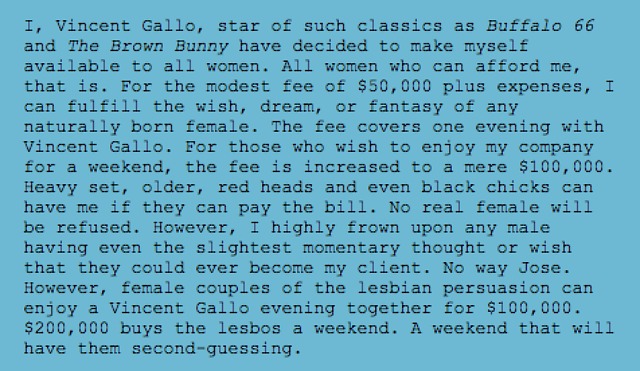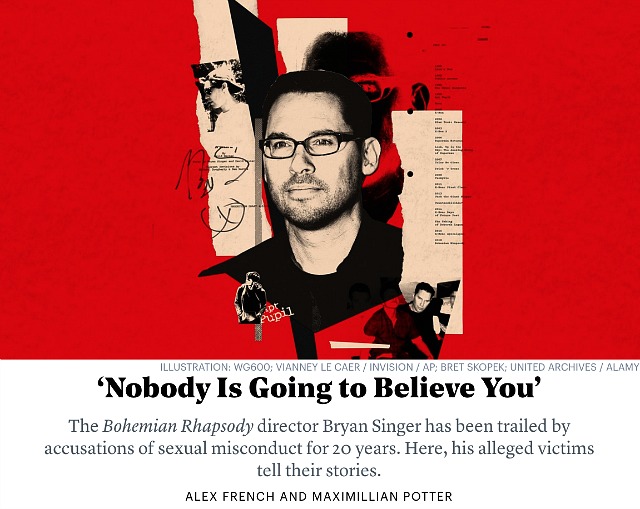A couple of weeks before the 11.2 opening of Bohemian Rhapsody, director Bryan Singer posted an Instagram statement about a long-in-the-works Esquire article about the director’s whole checkered history with twinks, some of which have been called into question.
Singer wrote that the Esquire article would “rehash false accusations and bogus lawsuits” about the sexual assault allegations that have been thrown upon his doorstep.
“I have known for some time that Esquire magazine may publish a negative article about me,” Singer said. “They have contacted my friends, colleagues, and people I don’t even know. In today’s’ climate where people’s careers are being harmed by mere accusations, what Esquire is attempting to do is a reckless disregard for the truth, making assumptions that are fictional and irresponsible.”
Esquire‘s expected publishing of the piece would have presumably been timed to coincide with 20th Century Fox’s Bohemian Rhapsody promotion. Except the article, written by Alex French and Maximillian Potter, never appeared. Not last year, I mean. Now it finally has, but in the Atlantic, not Esquire.
The piece, currently on the Atlantic website, is well-sourced and quite brutal.
Singer’s latest statement, given to Variety‘s Gene Maddaus: “The last time I posted about this subject, Esquire magazine was preparing to publish an article written by a homophobic journalist who has a bizarre obsession with me dating back to 1997. After careful fact-checking and, in consideration of the lack of credible sources, Esquire chose not to publish this piece of vendetta journalism.
“That didn’t stop this writer from selling it to The Atlantic. It’s sad that The Atlantic would stoop to this low standard of journalistic integrity. Again, I am forced to reiterate that this story rehashes claims from bogus lawsuits filed by a disreputable cast of individuals willing to lie for money or attention. And it is no surprise that, with Bohemian Rhapsody being an award-winning hit, this homophobic smear piece has been conveniently timed to take advantage of its success.”
Excerpt from French and Potter’s Atlantic piece: “We spent 12 months investigating various lawsuits and allegations against Singer. In total, we spoke with more than 50 sources, including four men who have never before told their stories to reporters.
Read more




